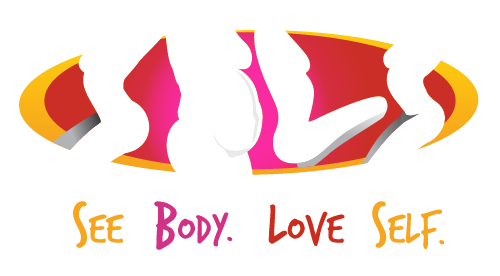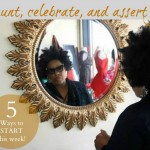“Get healthy.” “Eat Healthy.” We see articles, blog posts, and commercials everywhere incorporating the word “healthy” into lingo. It’s as if “healthy” is the latest buzz word. Along with the word, we also are bombarded with information about fat, cholesterol, GMOs, and toxic chemicals in our foods. We are constantly cautioned to avoid diabetes, cancer, and obesity at all cause. Sometimes it can become quite overwhelming for some people. How much is too much concern? How far is too far when it comes to focusing on “healthy” living?
When concerns about “healthy” food turn into obsession, it can become an unhealthy situation. Orthorexia Nervosa is not yet recognized as a clinical diagnosis yet, and it is not yet an official eating disorder. However, it is a very real problem for some people. When a quest for health evolves into a rigid mindset about food based on control, shame, and self-punishment the quest becomes headed in the wrong direction. Here is insight from Karin Kratina, PhD, RD, LD/N on the National Eating Disorders Association (NEDA) website:
Orthorexia starts out as an innocent attempt to eat more healthfully, but orthorexics become fixated on food quality and purity. They become consumed with what and how much to eat, and how to deal with “slip-ups.” An iron-clad will is needed to maintain this rigid eating style. Every day is a chance to eat right, be “good,” rise above others in dietary prowess, and self-punish if temptation wins (usually through stricter eating, fasts and exercise). Self-esteem becomes wrapped up in the purity of orthorexics’ diet and they sometimes feel superior to others, especially in regard to food intake.
If not treated a person with orthorexia may suffer from several health issues due to lack of nutrition and imbalanced eating patterns. He or she may even experience social and psychological distress as a result of the unhealthy obsession with food and diet. That is why it is important to be informed and aware for yourself and others. Here are some signs questions to help you consider whether or not you may be dealing with orthorexia. This list is from the National Eating Disorders website:
- Do you wish that occasionally you could just eat and not worry about food quality?
- Do you ever wish you could spend less time on food and more time living and loving?
- Does it seem beyond your ability to eat a meal prepared with love by someone else – one single meal – and not try to control what is served?
- Are you constantly looking for ways foods are unhealthy for you?
- Do love, joy, play and creativity take a back seat to following the perfect diet?
- Do you feel guilt or self-loathing when you stray from your diet?
- Do you feel in control when you stick to the “correct” diet?
- Have you put yourself on a nutritional pedestal and wonder how others can possibly eat the foods they eat?
According to the NEDA website, “the more questions you respond ‘yes’ to, the more likely you are dealing with Orthorexia Nervosa.
Although this article is meant to inform you, it is not meant to scare you away from your body journey to eat well and live well. If you are invested in and concerned about your health, it does not mean that you are automatically dealing with a disorder. Genuine attention to what you eat and the quality of your food is a sign of self-love. It is only concerning when love is absent from the equation and replaced with fear, guilt, and self-loathing. As The Body Relationship Coach, I advocate a loving relationship with body and self. I believe that when love is the foundation of the pursuit of “healthy”, shame and judgement are excluded from the wellness journey. Rather than using food as a tool to control or punish your body, it can be used to nourish and love it. This approach to health and wellness creates a safe, loving foundation that helps to avoid possible diet obsession and toxic food relationship.
Are you concerned about yourself or others having a toxic relationship with food or perhaps being obsessed with “healthy” eating? Here are some contact sources for the National Eating Disorders Association:
- Call the Helpline: 1-800-931-2237
- Take The NEDA Screening: http://screening.mentalhealthscreening.org/NEDA
- Find A Support Group or Treatment Center: https://www.nationaleatingdisorders.org/find-treatment
If you feel that you have not gotten to the point of having a dangerous relationship with your food and you would like to be proactive in building a loving relationship with your body, I’d be happy to talk with you and help you work through your concerns and create a plan for wellness that does not compromise your holistic health in any way.
Get Body Relationship Support Now:
[email protected]
Related articles across the web
Other Body Love Posts You Will Enjoy:
Ivy LaArtista
Latest posts by Ivy LaArtista (see all)
- Netflix OITNB Early Release May Ruin My Self Care Saturday - 06/12/2015
- How I Manage My Challenging Body Image Moments - 06/10/2015
- Yoga On The Mall | My First DC Yoga Week Experience - 05/09/2015
- The Smart Way To Save Money On Healthy, Whole Foods - 04/23/2015







 Welcome!
I'm Ivy, The Body Relationship Coach.
As a holistic health coach and body image expert I offer a unique blend of education and empowerment that is designed to help you embrace a healthy, loving relationship with your body and self. SBLS is my life journey turned into my life mission!
Welcome!
I'm Ivy, The Body Relationship Coach.
As a holistic health coach and body image expert I offer a unique blend of education and empowerment that is designed to help you embrace a healthy, loving relationship with your body and self. SBLS is my life journey turned into my life mission! 




Pingback: National Eating Disorders Awareness Week Coverage: End-of-the-Week Roundup | The Quantum Vegan()